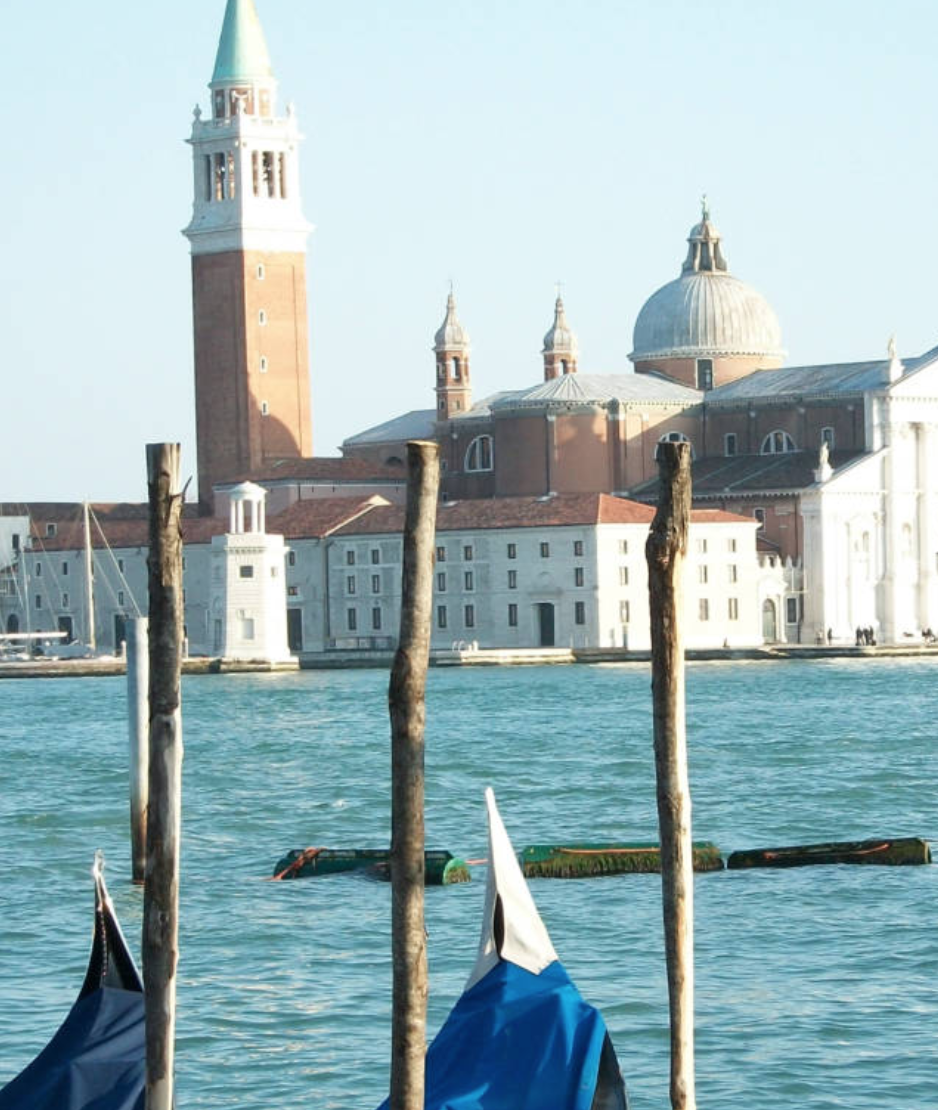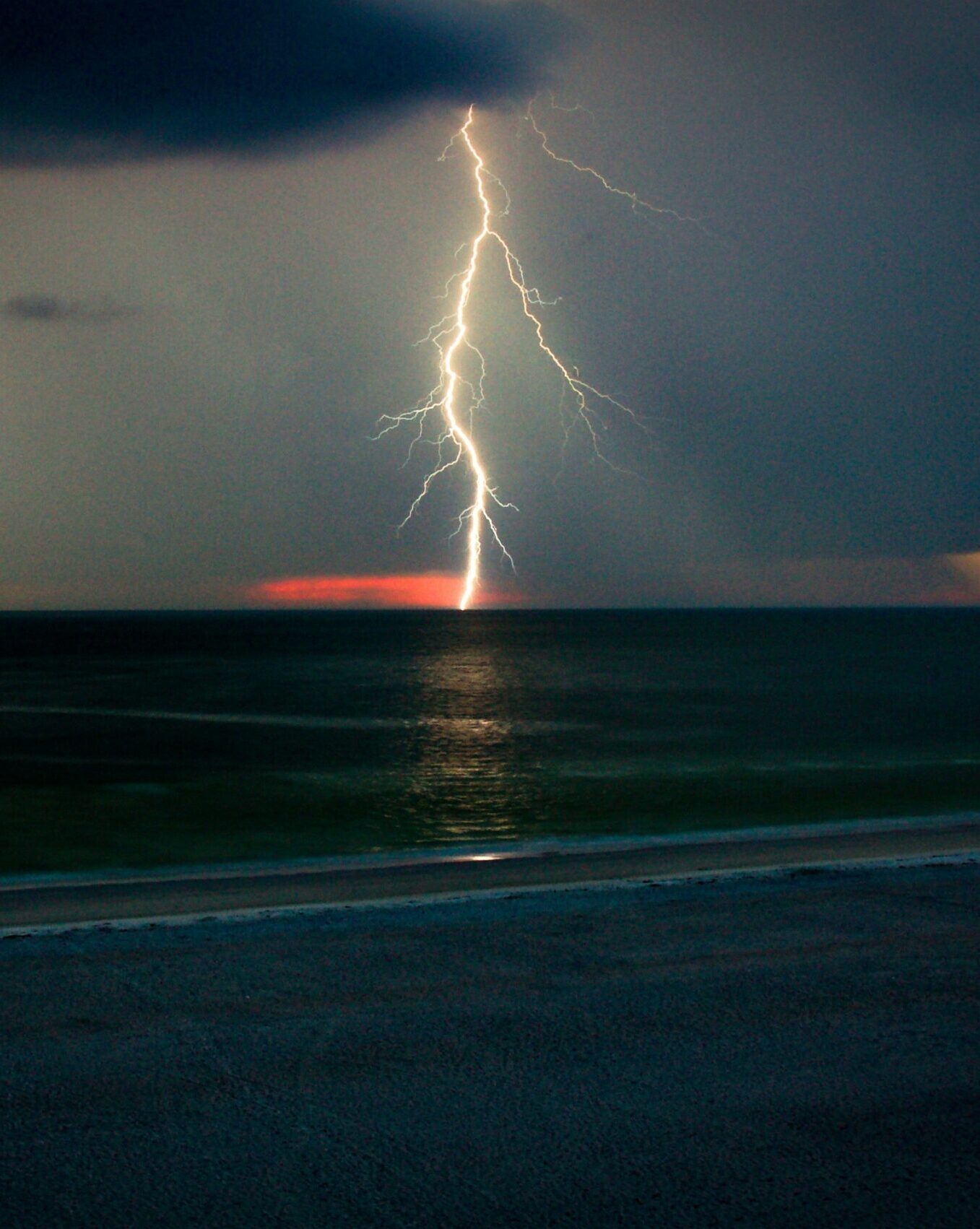By RITA CIRESI
 Venice, Italy
Venice, Italy
I bought it thirty years ago on my first visit to Italy, in a cramped bookbinding shop tucked on a dark, narrow alley behind Piazza San Marco. I paid for it in lire—heavy coins that bore the images of grapevines and olive branches, and oversized pastel bills printed with portraits of Guglielmo Marconi and Maria Montessori.
My address book, covered in blue marbled paper, is the size of 3 x 5 index card. The flyleaf is stamped with the symbol of Venice: a winged lion. The lion looks proudly out, as if—in a city where many go to deliberately get lost in the enchanting maze—he knows exactly where he is going.
The original entries in my rubrica were neatly penned in thin blue ink—the addresses of my sisters, cousins, and aunts and uncles. My parents didn’t rate an entry because they still lived in my childhood home in Connecticut, an address so deeply ingrained in my brain that I used it as my password to dial up a curious new entity called the World Wide Web.
The next round of entries came in bold black ink that charted my writing career. Here were the names of editors and publicists and their perky can-do assistants Katy and Abby. Listed were now-defunct bookstores that had hosted me for readings, and contact information for the famous photographer who made Joyce Carol Oates and Raymond Carver look intense and introspective, but who made me look like a startled corpse. “Don’t smile,” she said. “Smiling is for kids.”
Then came the next, much less illustrious decade, when I had lots to frown about. In blotchy green ink I recorded the long list of agents who chose not to represent me, the editors who said no thanks, the hospital billing clerk who helped untangle my daughter’s astronomical medical bills, and the number of the IRS hotline.
Around this time my parents appeared in the book, first their Section 8 address, then a series of rehabilitation facilities, ending with my dad’s plot number in Saint Lawrence Cemetery and the nursing home where my mother still lives, if you can call “living” sitting strapped into a wheelchair all day, looking fearfully at the nurses and aides who dispense her meds, change her diapers, and feed her applesauce and pureed peas because she no longer can be trusted to chew her food. “Swallow,” they command her.
* * *
Yesterday I took out my rubrica to address Christmas cards and realized that half my contacts bear e-mails that end in aol.com. Not surprisingly, half of them are dead.
The passing of those of the Greatest Generation—my dad and aunts and uncles—came as no surprise, as they were born in the teens and twenties. Much more disturbing, as I flipped through the pages of the book, was the death of friends and fellow writers from cancer, accident, suicide, and AIDS. I wondered who cleared the rusty paper clips and spent pens from their desks and who agonized over whether or not to toss their unfinished novel manuscripts into the recycling bin.
Their names—and the lines drawn through them—were a sobering sight. But most unsettling was the sight of my nephew’s name. When he died of leukemia at 28, I didn’t cross out his entry. Instead, I wrote down the date of his death, and that 10/22/16 sits there to remind me of the day I realized it was all for naught, this relentless quest to be Somebody. I already was some body—with a faulty heart, failing eyes, and aching feet—and that body soon enough would fulfill the promise the priest made every Ash Wednesday as he ground ash onto my forehead: remember thou art dust and to dust thou shalt return.
* * *
My Christmas card list grows smaller every year. And my address book now is so worn along the edges that the marbled blue paper has faded to white. Every year I swear I’ll buy a brand new book and start over.
But I don’t want to start over, because then I wouldn’t be able to hold in my wrinkled hands this tiny book purchased on a magical day when I got lost in the most magical of cities. The streets weren’t marked, the bridges so tiny they didn’t bear a name. My sneakers plunked on the wooden planks still puddled with water from the last acqua alta. Every few feet I faced a choice: destra o sinistra? Right or left?
I was comforted to know that no matter which way I turned, eventually I would spill out of the dark maze onto the banks of the lagoon and be greeted by the glorious sight of gondole silently gliding by and the sun glinting off the dome of Santa Maria della Salute.
Rita Ciresi is author of the novels Bring Back My Body to Me, Pink Slip, Blue Italian, and Remind Me Again Why I Married You, and three award-winning story collections, Second Wife, Sometimes I Dream in Italian, and Mother Rocket. She is professor of English at the University of South Florida and fiction editor of 2 Bridges Review.




